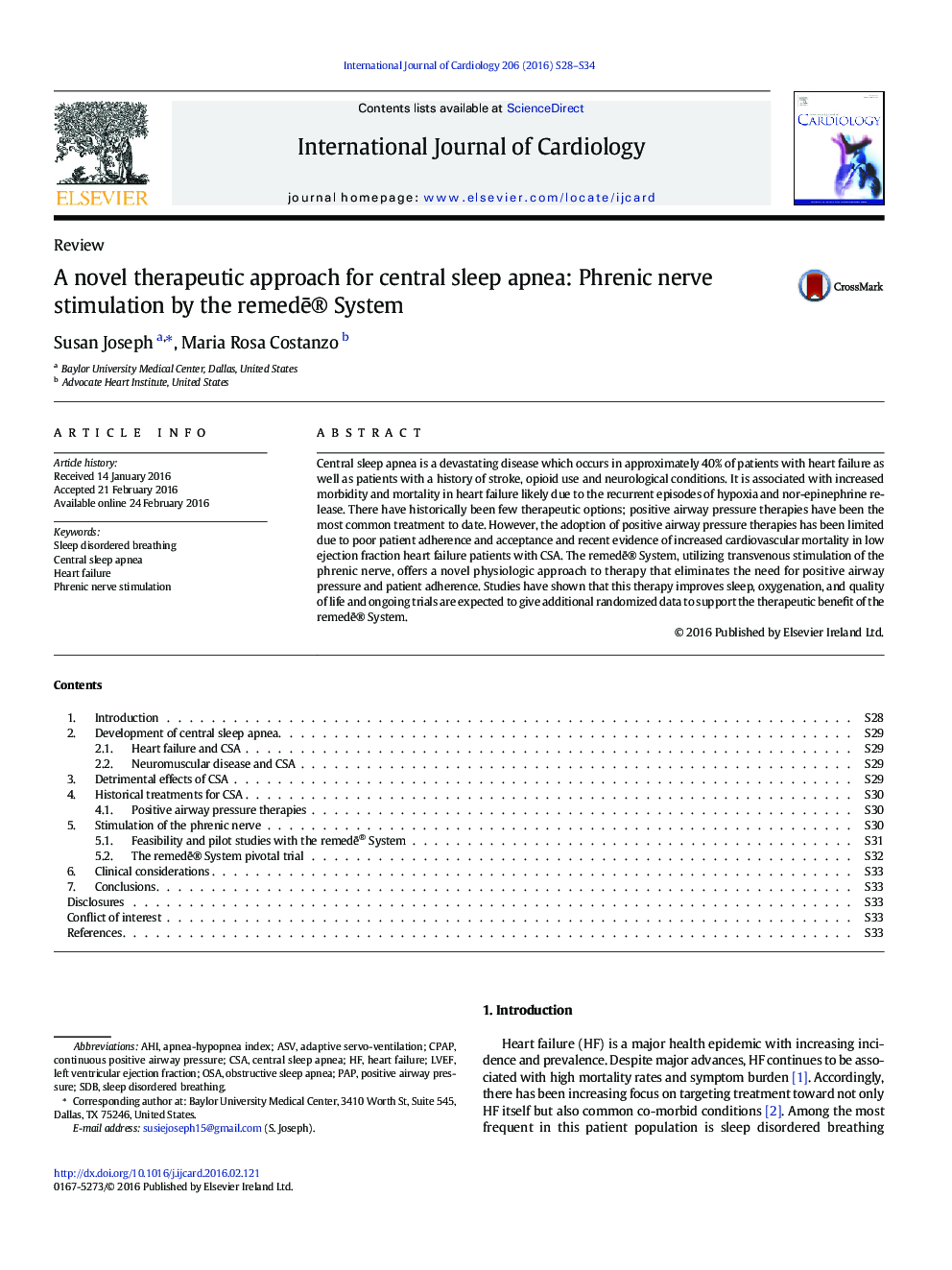| Article ID | Journal | Published Year | Pages | File Type |
|---|---|---|---|---|
| 2928806 | International Journal of Cardiology | 2016 | 7 Pages |
•Central sleep apnea is a devastating disease which occurs in a significant portion of patients with HF.•Current mask-based therapies have limitations, which include poor patient adherence and recent evidence of increased cardiovascular mortality in low ejection fraction HF patients with CSA.•The remedē® System, utilizing transvenous stimulation of the phrenic nerve, offers a novel physiologic approach to the treatment of CSA, which eliminates the need for positive airway pressure.
Central sleep apnea is a devastating disease which occurs in approximately 40% of patients with heart failure as well as patients with a history of stroke, opioid use and neurological conditions. It is associated with increased morbidity and mortality in heart failure likely due to the recurrent episodes of hypoxia and nor-epinephrine release. There have historically been few therapeutic options; positive airway pressure therapies have been the most common treatment to date. However, the adoption of positive airway pressure therapies has been limited due to poor patient adherence and acceptance and recent evidence of increased cardiovascular mortality in low ejection fraction heart failure patients with CSA. The remedē® System, utilizing transvenous stimulation of the phrenic nerve, offers a novel physiologic approach to therapy that eliminates the need for positive airway pressure and patient adherence. Studies have shown that this therapy improves sleep, oxygenation, and quality of life and ongoing trials are expected to give additional randomized data to support the therapeutic benefit of the remedē® System.
